How do Wooden Toys Help to Enhance Child Development?
When we think about child development, we often focus on education, nutrition, and healthcare. But what about play? Play is not just a way for children to have fun—it’s a vital component of their development, shaping their cognitive, social, and emotional growth. Wooden toys, in particular, play a significant role in this process, offering benefits that go far beyond entertainment.
Imagine the quiet concentration of a child as they build a tower with wooden blocks, or the joy of fitting a wooden puzzle piece into place. These simple yet profound moments of play are building blocks for a lifetime of learning and growth.
The Cognitive Benefits of Wooden Toys
Wooden toys are renowned for their ability to enhance cognitive development. Unlike plastic toys that often come with flashing lights and pre-programmed sounds, wooden toys encourage children to use their imagination and problem-solving skills. This open-ended play is crucial for developing creativity, critical thinking, and spatial awareness.
For example, when a child plays with a set of wooden blocks, they’re not just stacking pieces—they’re learning about balance, gravity, and symmetry. These early experiences with problem-solving lay the foundation for more complex cognitive skills like mathematics and engineering.
Moreover, wooden puzzles are excellent tools for enhancing memory and concentration. As children work to fit each piece into place, they’re developing their ability to focus, recall patterns, and think logically. These cognitive benefits are not only immediate but also contribute to long-term academic success.
Social and Emotional Development
Wooden toys also support social and emotional development by encouraging cooperative play and communication. Unlike electronic toys that can be isolating, wooden toys often require interaction with others. For example, a wooden kitchen set invites children to role-play, taking turns as the chef or the customer, and negotiating roles in a shared play experience.
This type of play helps children develop empathy, understanding, and communication skills. By acting out different scenarios, children learn to express their emotions, understand the perspectives of others, and navigate social situations—all essential skills for their emotional intelligence.
Furthermore, wooden toys provide a calming, grounding experience for children, helping them to feel secure and focused during play. This emotional comfort can be particularly beneficial for children who experience anxiety or sensory sensitivities.
Encouraging Independent Play and Self-Confidence
Wooden toys are ideal for promoting independent play, allowing children to explore and experiment at their own pace. This independence fosters self-confidence as children learn to solve problems and create on their own. For instance, when a child successfully completes a wooden puzzle or builds a structure from blocks, they experience a sense of accomplishment that boosts their self-esteem.
This sense of achievement is crucial for building resilience and a growth mindset. By learning to persist through challenges and finding creative solutions, children develop the confidence to tackle new tasks and overcome obstacles in all areas of life.
The Aesthetic and Sensory Appeal of Wooden Toys
There’s something undeniably appealing about the look and feel of wooden toys. Their natural textures, muted colors, and simple designs are pleasing to the senses, offering a stark contrast to the often overstimulating plastic toys. This aesthetic quality not only makes wooden toys visually appealing but also contributes to a more peaceful and focused play environment.
The sensory experience of wooden toys also plays a role in child development. The weight, texture, and warmth of the wood engage different senses, providing a more holistic play experience. For example, the feel of smooth, polished wood can enhance fine motor skills, while the natural scent of the wood can create a calming, familiar atmosphere.
Conclusion: The Lasting Impact of Wooden Toys
Wooden toys are more than just playthings—they’re tools for learning, growth, and development. By choosing wooden toys, you’re giving your child the opportunity to develop cognitive, social, and emotional skills in a way that’s both natural and engaging. These toys offer a timeless appeal that not only nurtures your child’s development but also creates a lasting connection to the simplicity and beauty of natural materials.
At Brown Curves, we take pride in crafting wooden toys that support your child’s development at every stage. Each toy is designed with care, ensuring that your child enjoys a safe, enriching, and meaningful play experience. By choosing Brown Curves, you’re choosing a tradition of quality and a commitment to your child’s growth.




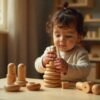
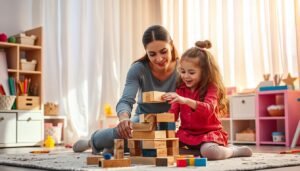
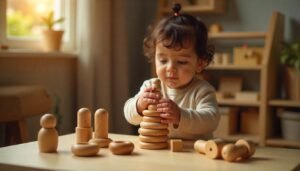
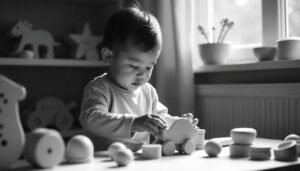


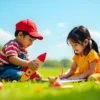
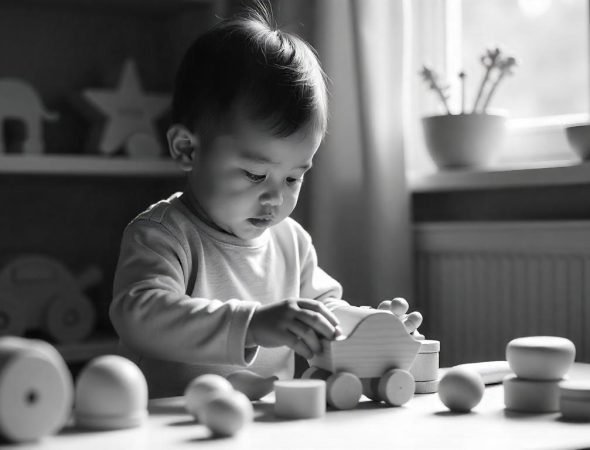
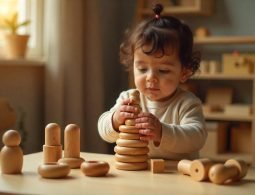
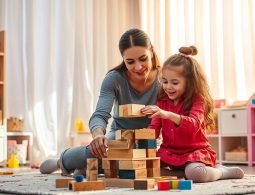

Add comment